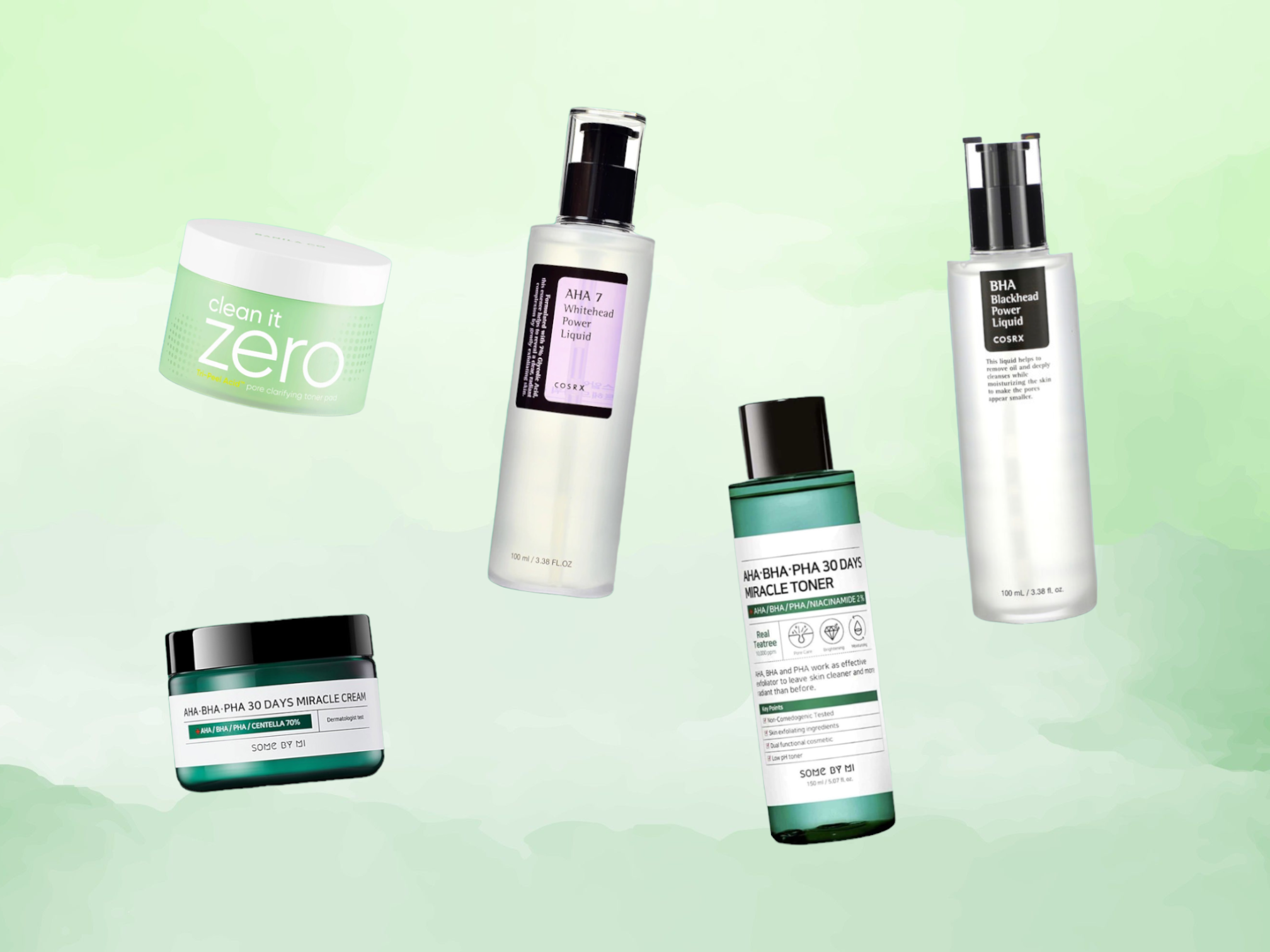AHA / BHA / PHA
From gently exfoliating with Alpha Hydroxy Acids, deep-cleaning pores with Beta Hydroxy Acids, to nourishing sensitive skin with Polyhydroxy Acids, these powerful exfoliants provide diverse benefits for all skin types, elevating your skincare routine to achieve a radiant, youthful, and revitalized complexion.
Our favourites:
Filters
medicubeZero Pore Pad
Frequently Asked Questions
What are AHA, BHA, and PHA, and why are they used in skincare products?
AHA (Alpha Hydroxy Acid), BHA (Beta Hydroxy Acid), and PHA (Polyhydroxy Acid) are chemical exfoliants that help shed dead skin cells and reveal a brighter, more even complexion. AHAs are water-soluble and work on the surface level to brighten and even out skin tone. BHAs are oil-soluble, penetrating deeper into pores to unclog and reduce their appearance. PHAs provide similar effects as AHAs but are gentler, making them suitable for sensitive skin.
Are AHA/BHA/PHA skincare products suitable for all skin types?
AHA, BHA, and PHA products are generally suitable for all skin types, but they can vary in intensity. AHA is suitable for dry and normal skin, BHA is best for oily and acne-prone skin, while PHA is a great option for sensitive skin. As with all skincare products, a patch test is recommended to gauge skin tolerance.
What skincare concerns can AHA/BHA/PHA address?
AHA, BHA, and PHA can address a range of skin concerns. They can help with dullness, uneven skin tone, acne and breakouts, blackheads, enlarged pores, and signs of aging like fine lines and wrinkles.
How can I incorporate AHA/BHA/PHA products into my skincare routine?
These products usually come in the form of toners, serums, and peels. They are typically applied after cleansing and before moisturizing. As they increase skin sensitivity to the sun, it's recommended to use these products in your evening routine and follow with a broad-spectrum sunscreen in the morning.
How soon can I expect to see results from using AHA/BHA/PHA skincare products?
Results can vary depending on your skin type and concerns, but many people notice an improvement in skin texture and radiance within a few weeks. Remember that overuse can lead to skin irritation, so it's important to follow the instructions on the product packaging.
Can I use AHA/BHA/PHA with other skincare ingredients?
AHA, BHA, and PHA can be used with most other skincare ingredients, but caution should be taken when combining them with other potent actives like retinol and vitamin C to prevent skin irritation. Always consult with a dermatologist or skincare professional if unsure.










































